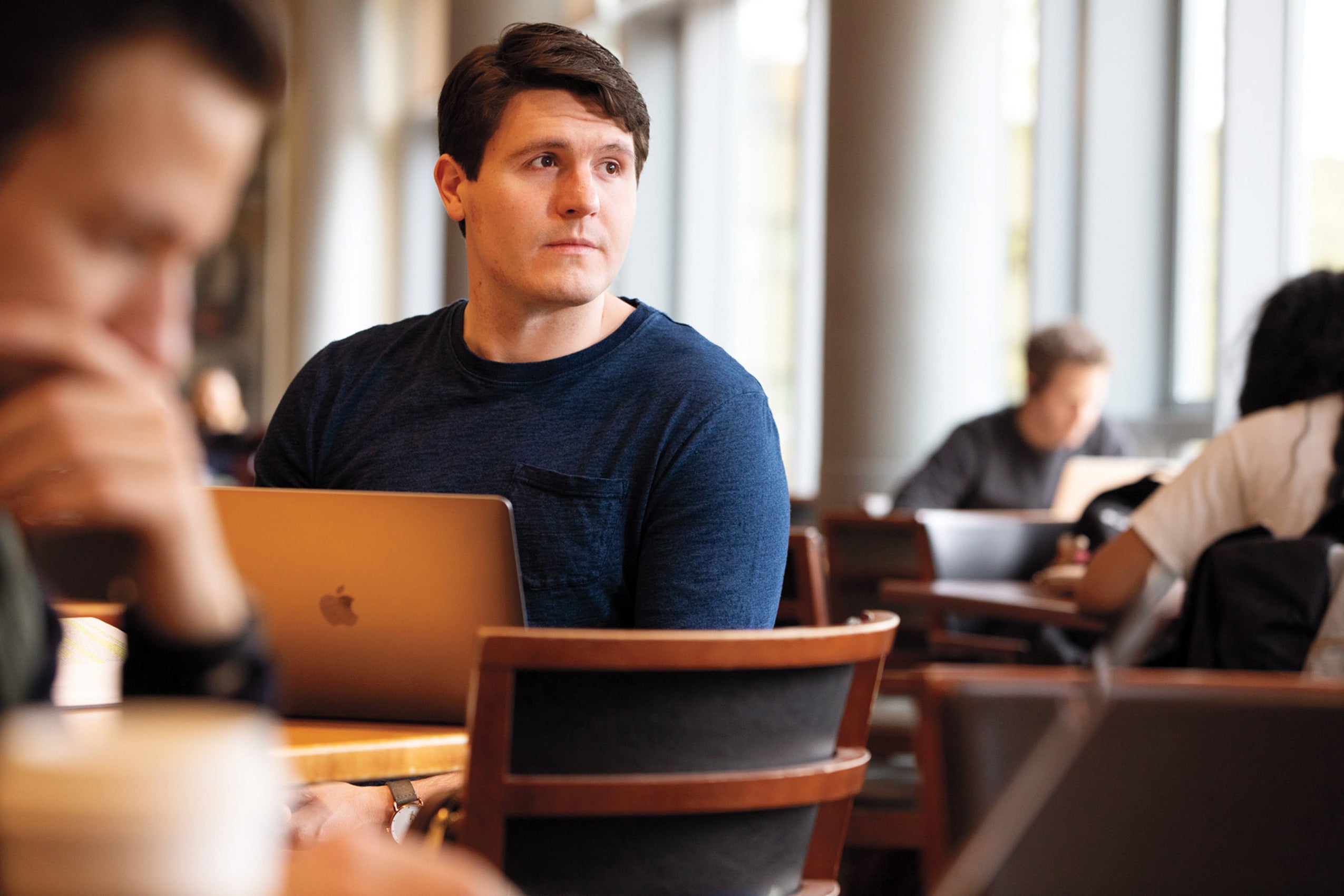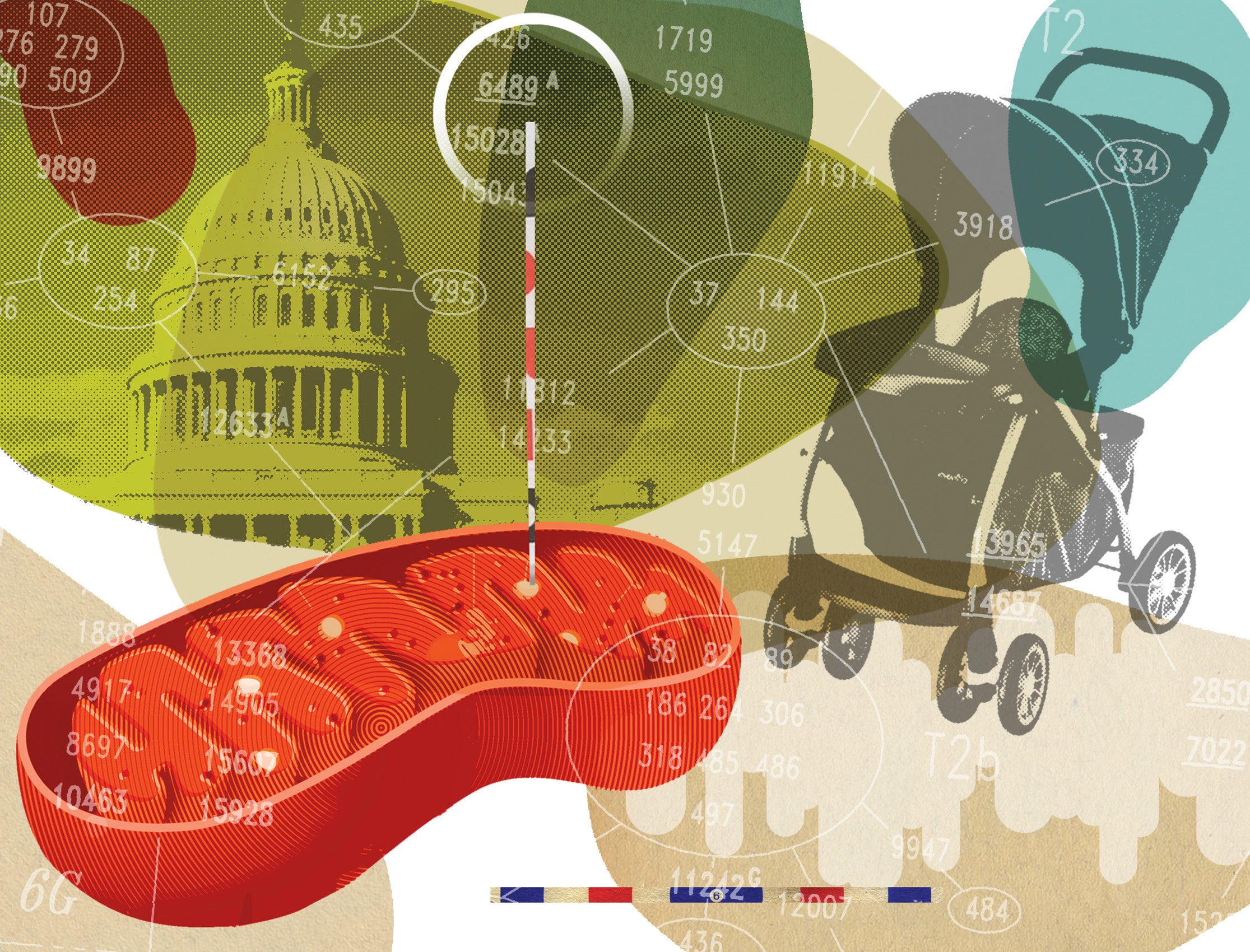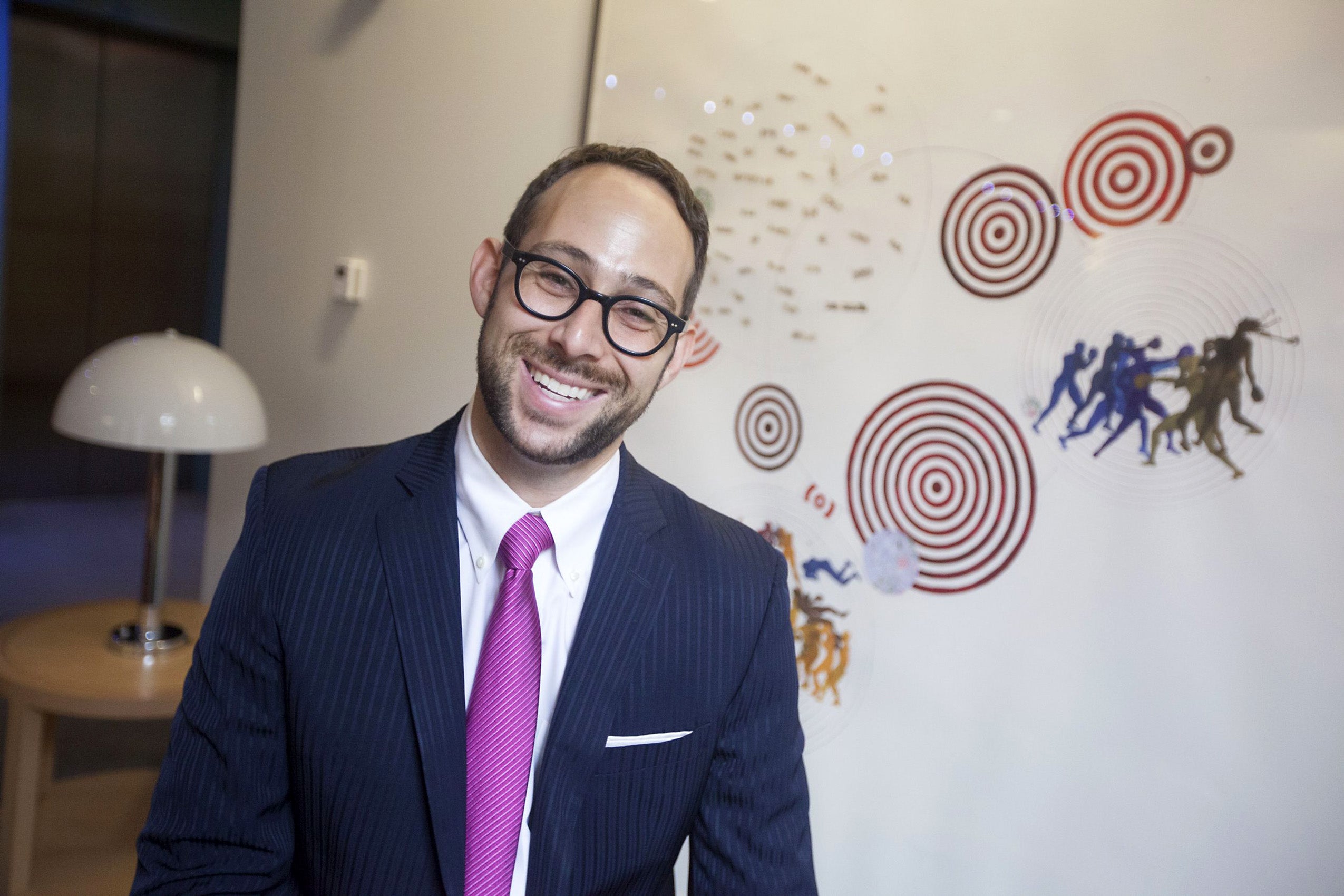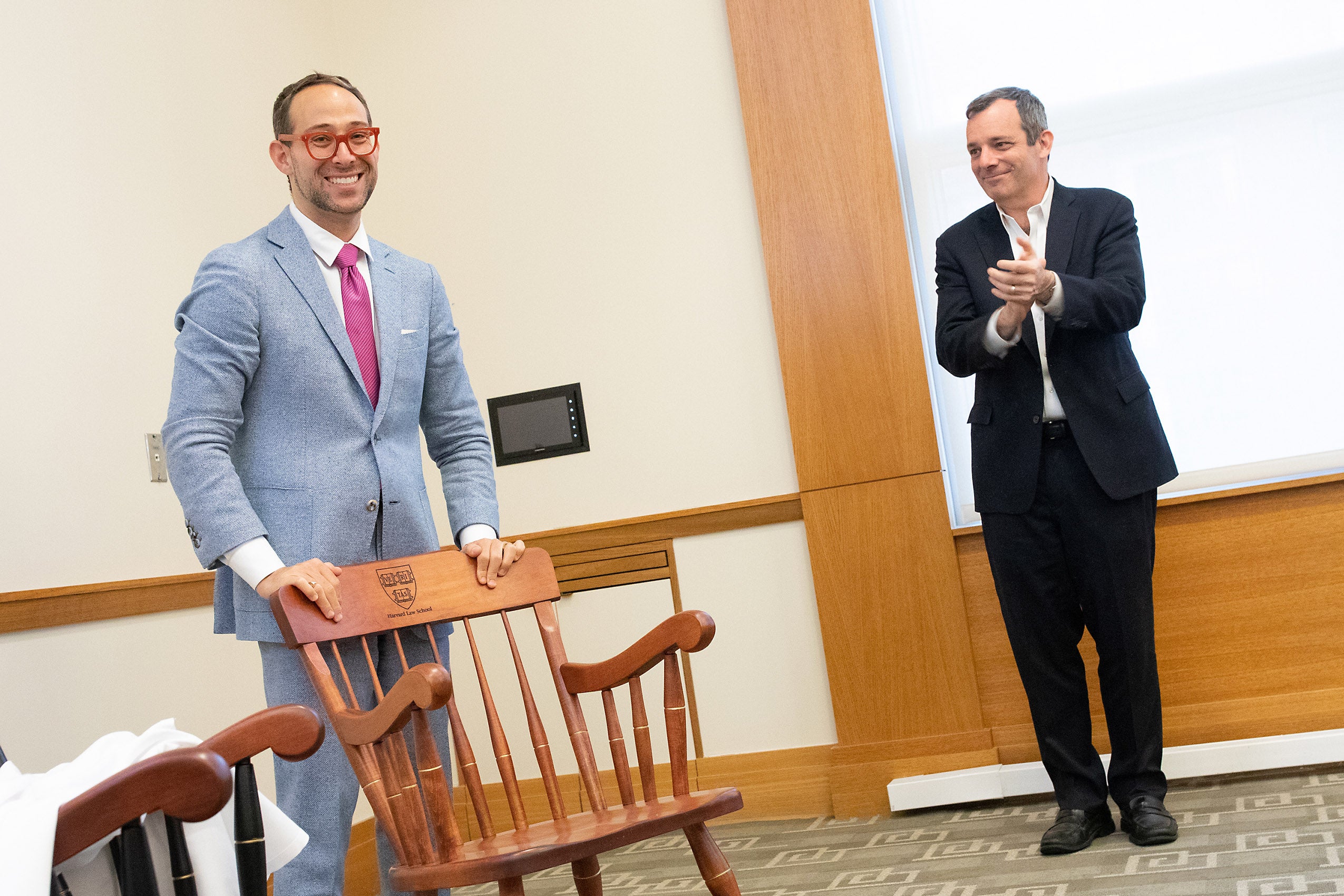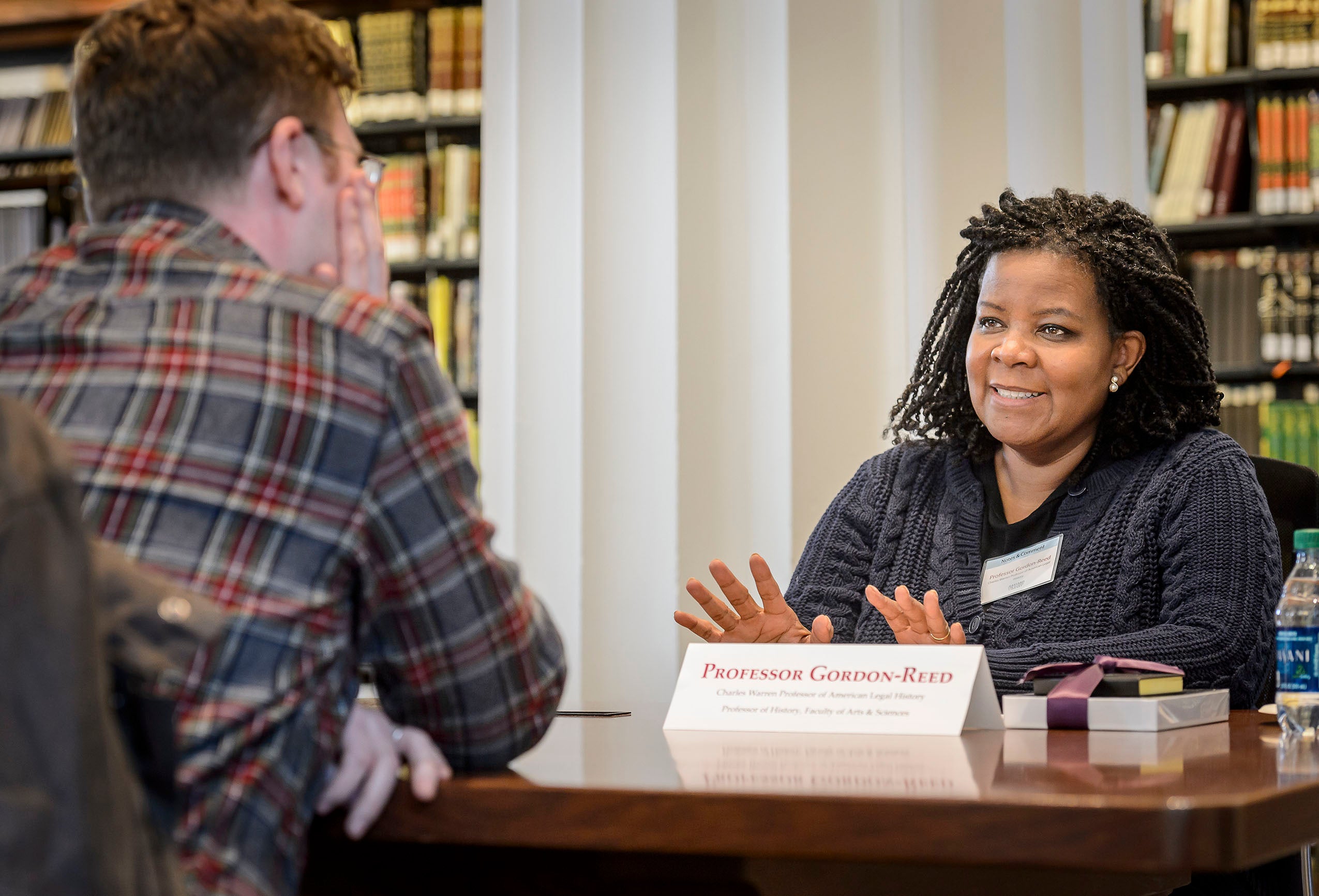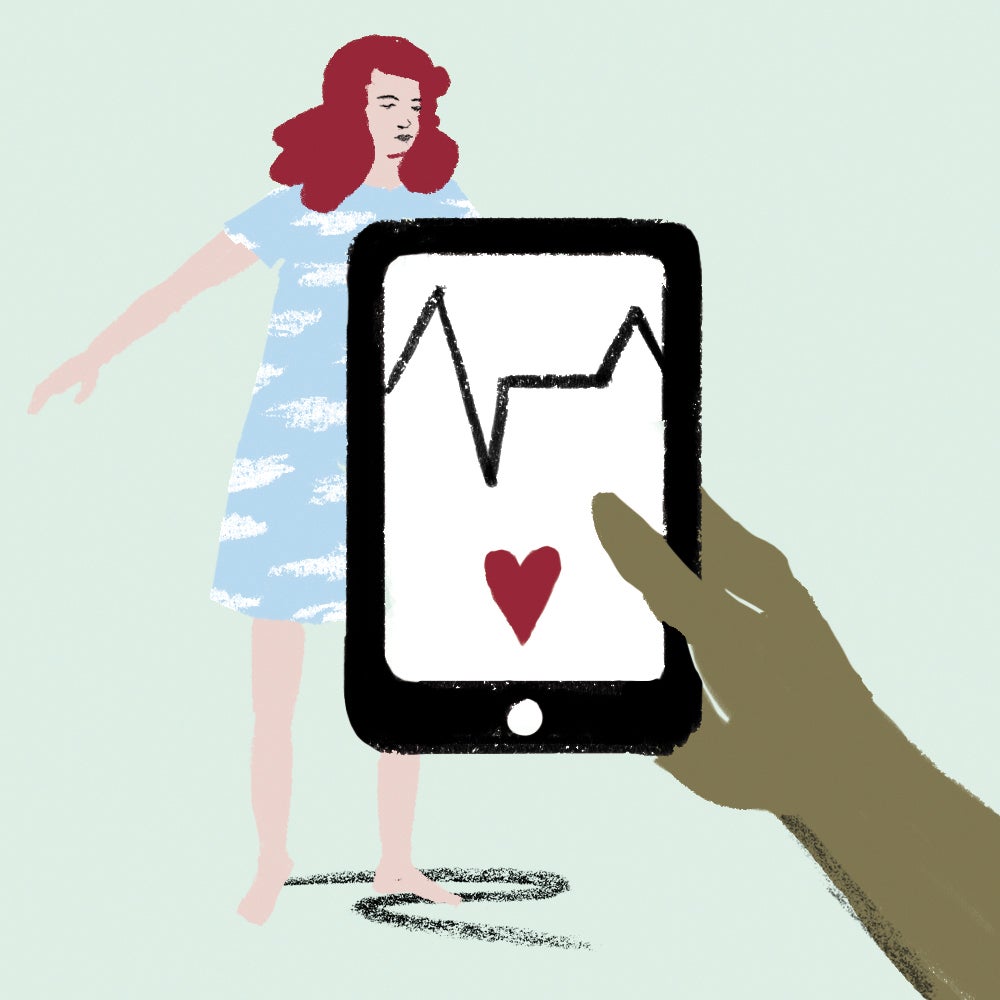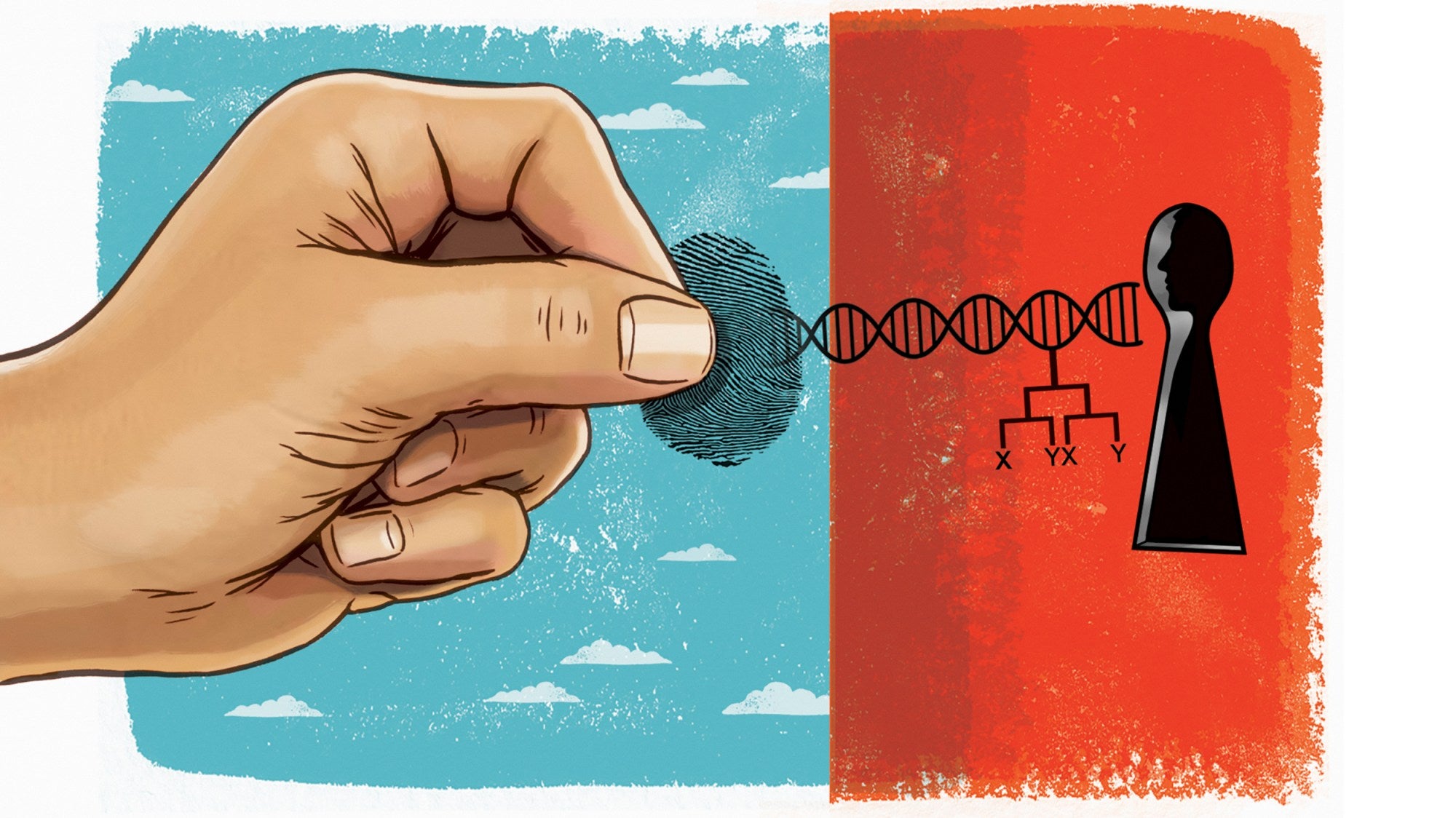People
Glenn Cohen
-
Common Knowledge
August 28, 2019
Harvard Law School’s new online course Zero-L helps prime incoming students for success
-
Donna Ferguson awoke in the resort city of Cancún before sunrise on a sweltering Saturday in July. She wasn’t headed to the beach. Instead, she walked down a short hallway from her Sheraton hotel and into Galenia Hospital. ... I. Glenn Cohen, a law professor at Harvard and an expert on medical tourism, called the model used by NASH and a few other similar operations a “clever strategy” to attack some of the perceived risks about medical tourism. “It doesn’t answer all concerns, but I will say it’s a big step forward,” he said. “It’s a very good marketing strategy.”
-
A Question of Prevention
August 6, 2019
Calls are growing for the U.S. to lift a ban on mitochondrial replacement therapy, or MRT, a procedure developed to enable women who are at risk of passing on rare but devastating diseases to have healthy, biologically related children.
-
One thing to change: Question that status quo
July 30, 2019
I. Glenn Cohen explains why we should scrutinize what is and then ponder what should be
-
One thing to change: Question that status quo
July 29, 2019
As part of a series called Focal Point, in which the Harvard Gazette asks a range of Harvard faculty members to answer the same question, I. Glenn Cohen explains why we should scrutinize what is and then ponder what should be.
-
A rogue Chinese scientist stunned the world last year when he announced the birth of genetically modified twin girls, prompting widespread outcry from the broader scientific community and calls for a “global moratorium” on editing human embryos that result in births. Yet months later, Democrats on Capitol Hill surprised many science policy experts when they attempted to roll back a related, 4-year-old ban on altering the DNA of embryos intended for pregnancies. To many health policy experts here, and research advocates across the country, the timing — just months after the biggest genome editing scandal in world history — was inexplicable...Research advocates say there’s a way for Congress to roll back the ban on MRT without opening the door to other types of heritable gene editing in or accusations of “designer babies” — or inviting the kind of political criticism that characterized this month’s appropriations debate. “One easy, quick suggestion would be to differentiate mitochondrial replacement therapy” from the other types of germline gene editing, said I. Glenn Cohen, a Harvard law professor specializing in bioethics and health law. “That would then let FDA evaluate it directly, which it is currently prohibited from doing.”
-
U.S. anti-abortion activists once ‘chipped away’ at Roe vs. Wade — now they’ve picked up a sledgehammer
May 22, 2019
The anti-abortion movement is hitting an aggressive new stride in the United States. Whether it breaks into a sprint toward the Supreme Court is worrying reproductive rights activists amid a renewed push to reverse the long-standing precedent that legalized abortions. ... It would take four votes from justices to agree the case deserves review, explained Glenn Cohen, a bioethicist and lawyer with Harvard Law School. "It's the kind of case where they're unlikely to take the case unless they have five votes to get rid of Roe v. Wade," he said, as well as enough votes to overturn Casey vs. Planned Parenthood, the 1992 ruling that partially reaffirmed the abortion law. Cohen said he can't foresee both Gorsuch and Kavanaugh facially overruling Roe. And Chief Justice John Roberts, who is also a conservative, has shown himself to be an "institutionalist" keen to protect the court's reputation, he added.
-
In a lecture titled “The Second Reproductive Revolution,” I. Glenn Cohen, the faculty director of the Petrie-Flom Center, marked his appointment as the first James A. Attwood and Leslie Williams Professor of Law.
-
Here’s a quick thought experiment: What if the FDA operated more like the CIA That’s not a suggestion that the agency engage in eater surveillance or conduct covert drug-testing operations. Rather, it’s a question about the state of the agency’s political independence and how it can be protected in the face of partisan pressure. ...So why not make FDA an independent agency? Earlier this year, seven of America’s most recent FDA commissioners co-wrote a piece of commentary urging such a change in Health Affairs journal. Today, in a new article for Science magazine, a team of researchers considers the ways that doing so would benefit the FDA’s mission and protect consumers. ... “FDA regulates a huge percentage of our economy and makes a huge difference to people’s lives,” says I. Glenn Cohen, professor at Harvard Law School and co-author of the paper. In addition, ongoing changes to FDA leadership make the current moment an apt time to consider the agency’s independence. In March, FDA commissioner Scott Gottlieb resigned from his role, after a brief tenure where he advanced a surprising number of Obama-era food policies. Currently, the agency is overseen by acting commissioner Ned Sharpless.
-
When science and politics collide: Enhancing the FDA
May 17, 2019
An article by I. Glenn Cohen, Eli Y. Adashi and Rohit S. Rajan: For the better part of a century, the U.S. Food and Drug Administration (FDA) preserved public health by rigorously applying the scientific method. The central tenet of the Food, Drug, and Cosmetic Act of 1938 which created the FDA calls for “experts qualified by scientific training and experience to investigate the safety of drugs.” In recent times, however, partisan political interposition has grown increasingly worrisome. As the sole arbiter standing between a new drug application and a potential public health calamity, the FDA can hardly afford to be buffeted by undue political interference. In a recent salvo in this decades-long tug-of-war over politics and independence, seven former FDA commissioners, hailing from both sides of the political aisle and spanning many administrations, recently recommended that the “FDA should be an independent federal agency reporting to the President” (1, 2). It is against this backdrop that we explore the utility, desirability, and feasibility of restructuring the FDA charter with political insulation and administrative streamlining in mind. Amid uncertainty over leadership and direction at the FDA since the commissioner stepped down in April, it is a particularly critical time to reflect on how to enhance the independence of the FDA in keeping with its enabling statute.
-
Harvard Law School’s incoming class of students will get a head start on their legal studies this summer. The school will soon launch the second iteration of its Zero-L program—a first-of-its kind curriculum of online courses designed to give new students some legal basics and a roadmap of what to expect once they arrive on campus. I caught up with professor Glenn Cohen, who developed Zero-L with associate dean for strategic initiatives Jessica Soban at the direction of Dean John Manning, to talk about the program and how it’s evolving after the pilot last summer.
-
Collaboration zone
April 26, 2019
Library event provides unique opportunity for faculty-student interaction.
-
California Hospital Secretly Filmed Women, Lawsuit Says
April 2, 2019
Dozens of women were filmed without their knowledge while receiving medical attention — including having surgery and giving birth — at a California hospital, according to a lawsuit filed last week in a state superior court. A lawyer for the women said 1,800 patients may have been filmed. The lawsuit alleges that motion-activated cameras were set up in three operating rooms at Sharp Grossmont Hospital in La Mesa, Calif., as part of an effort to catch a possible medicine thief. ...“They were reckless, to say the least,” Ms. Goddard said. It seemed that Sharp Grossmont could have found less intrusive ways to investigate the missing medicine, said I. Glenn Cohen, a professor at Harvard Law School and an author of the casebook “Health Care Law and Ethics.” He noted that he did not have information about the hospital’s defense. “It appears they kept at least some of the videos for some time,” Professor Cohen said, “and one would think the right thing to do, even on the hospital’s own rationale, would be rapidly review them and destroy them right after if they didn’t show any evidence of the drug theft. “The fact that they failed to do even that is quite troubling.”
-
Who owns your sperm after you die?
March 20, 2019
Is sperm basic property? What happens when frozen sperm is contested? Can children born after the death of the father inherit from the father's estate? Glenn Cohen is a professor of law at Harvard Law School. He is one of the world's leading experts on the intersection of bioethics (sometimes also called "medical ethics") and the law, as well as health law.
-
A Mother Learns the Identity of Her Child’s Grandmother. A Sperm Bank Threatens to Sue.
February 19, 2019
Danielle Teuscher decided to give DNA tests as presents last Christmas to her father, close friends and 5-year-old daughter, joining the growing number of people taking advantage of low-cost, accessible genetic testing. But the 23andMe test produced an unexpected result. Ms. Teuscher, 30, a nanny in Portland, Ore., said she unintentionally discovered the identity of the sperm donor she had used to conceive her young child. ...I. Glenn Cohen, a professor and bioethicist at Harvard Law School, agreed and questioned whether such a contract is “contrary to public policy” and thus unenforceable. The mother of a child conceived with donated sperm might well argue that in trying to determine whether the child has any inherited medical issues, she inadvertently discovered a donor’s identity. A sperm bank likely can’t prevent her from obtaining that medical information, he said.
-
Faculty Books in Brief: Winter 2019
January 29, 2019
With the increased use of a massive volume and variety of data in our lives, our health care will inevitably be affected, note the editors of a new collection, one of the recent faculty books captured in this section.
-
Why It’s Time To Rethink The Laws That Keep Our Health Data Private
January 29, 2019
In 1996, the year Congress passed its landmark health privacy law, there was no Apple Watch, no Fitbit, no Facebook support groups or patients tweeting about their medical care. Health data was between you, your doctor, and the health care system. More than two decades later, that law — the Health Insurance Portability and Accountability Act (HIPAA) — is still the key piece of legislation protecting our medical privacy, despite being woefully inadequate for dealing with the health-related data we constantly generate outside of the health care system. Now, there could be an opportunity for a revamp. ... Worse, HIPAA is a “four-letter word that medical people often use when they don’t want to do anything,” according to [I. Glenn] Cohen, a professor of law at Harvard University. Doctors have used it to avoid giving patients their own medical records, which, he says, “is like working with someone to write an autobiography and then being told you can’t take that biography out of the library.”
-
Perspectives on gene editing
January 11, 2019
Harvard researchers—including HLS Professor and Petrie-Flom Center Faculty Director Glenn Cohen—and others share their views on key issues in the field.
-
In an effort to get critical parts of the US government funded, the House of Representatives is going to vote today on a bill, H.R. 265, that would pay for health inspectors, food stamps, and drug approvals, according to Politico. It would also would renew the prohibition on genetically modified human beings in the US. ... By blocking any-and-all DNA changes to an embryo, I. Glenn Cohen, a professor at Harvard Law School, says American legislation has taken a "meat axe" approach when what's needed is a "scalpel" to separate good uses of technology from bad. Congress is again missing a chance “to craft a better, more subtle policy” that could allow real public debate on new reproductive technologies, Cohen says.
-
Perspectives on gene editing
January 9, 2019
Medicine is at a turning point, on the cusp of major change as disruptive technologies such as gene, RNA, and cell therapies enable scientists to approach diseases in new ways. The swiftness of this change is being driven by innovations such as CRISPR gene editing, which makes it possible to correct errors in DNA with relative ease. ... Yet as I. Glenn Cohen, faculty director of the Petrie-Flom Center for Health Law Policy, Biotechnology, and Bioethics at Harvard Law School, has said, gene editing comes in many varieties, with many consequences. Any deep ethical discussion needs to take into account those distinctions.
-
The Library Innovation Lab at Harvard Law School published a full collection of United States court cases dating from 1658 to 2018 on Monday as part of a years-long project to make case law more accessible. The initiative, dubbed the Caselaw Access Project, digitized more than 40 million pages of U.S. state, federal, and territorial case law documents from the Law School library. Though basic information for all cases in the database is now publicly accessible, users are limited to five hundred full case texts per day. Harvard affiliates currently have unlimited access to all case texts. Adam Ziegler, who directed the project, said his team worked on the Caselaw Access Project for more than six years. “It started with the simple observation that there was a real need for ready access to court opinions,” Ziegler said...Several Law School faculty members expressed their optimism about the project and its potential. Law School Professor I. Glenn Cohen called the project “a game changer,” and Law School Professor Christopher T. Bavitz said the initiative will bring about “enormous benefits” for teaching, research, and legal analysis.
